Your cart is empty
Subtotal:$0.00
Brake maintenance is an indispensable aspect of responsible vehicle ownership, characterized by the periodic replacement of worn brake pads and rotors, which is considered a routine procedure. However, despite this regular maintenance, there may be instances where, following the installation of fresh brake pads and rotors, an unwelcome and disconcerting sound makes its presence felt—brake squeaking. This occurrence can be exceedingly frustrating, especially when you've just made an investment in these foundational brake components.
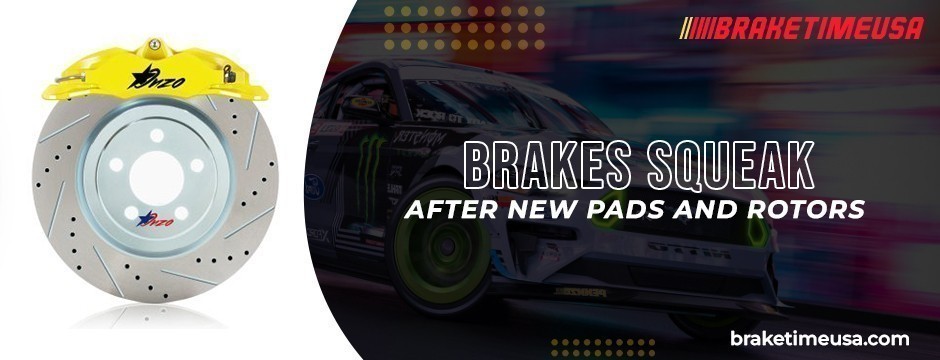 Understanding the Crucial Role of Proper Brake Function
Understanding the Crucial Role of Proper Brake FunctionBefore we delve into an investigation of the causes behind the common issue - why do my brakes squeak after new pads and rotors, it is paramount to fully comprehend the central role that brakes occupy in ensuring the safety of your vehicle. The brake system carries the weighty responsibility of slowing down or coming to a complete stop as and when necessary, serving as the linchpin of not just your safety but also that of other road users.
A well-maintained brake system transcends the realm of mere convenience; it ascends to a higher plane—the domain of safety. This underscores the critical significance of promptly and effectively addressing any issues or concerns related to your vehicle's brakes. In doing so, you actively uphold the safety and security of your journeys, as well as those of fellow travelers on the road.
Let's delve deeper into the common reasons for brake squeaking that occur after the installation of new brake pads and rotors:
During the crucial "bedding-in" process of new brake pads and rotors, a thin layer of brake pad material transfers onto the surface of the rotor. When not executed correctly, this transfer can lead to uneven pad material deposits on the rotor's surface, resulting in squeaking noises during braking. However, the good news is that this issue is often fixable. By re-bedding the brake pads and rotors properly, you can distribute the pad material evenly, potentially eliminating the noise.
The quality of the brake pads you choose for your vehicle can significantly impact the occurrence of squeaking. Low-quality or budget brake pads may consist of harder compounds or lack the necessary shims and insulation to dampen noise effectively. Opting for high-quality brake pads can drastically reduce the likelihood of squeaking. Premium brake pads typically come equipped with shims and insulation designed to absorb vibrations and minimize noise.
Proper lubrication of various brake components, including caliper guide pins and contact points, is crucial to preventing noise issues. When there's insufficient or improper lubrication, these components can generate friction and lead to squeaking. Therefore, during a brake replacement, it's imperative to ensure that all moving parts are adequately and correctly lubricated. This reduces friction and minimizes the risk of unwanted noise.
Surprisingly, even new rotors can possess minor surface irregularities that might lead to brake squeaking. These irregularities can originate from the rotor's manufacturing process or result from improper handling. In some cases, these surface imperfections can gradually improve as the rotors wear in and the irregularities become less pronounced over time.
Brake calipers are pivotal in the braking process. Any problems with them can have a direct impact on brake noise. Sticking or unevenly moving calipers can exert uneven pressure on the brake pads, leading to squeaking noises. Addressing caliper problems promptly is essential to maintaining a quiet and efficient braking system.
Environmental conditions, such as high humidity or moisture, can contribute to brake squeaking. When water or moisture comes into contact with the rotor's surface, it can interact with the brake pads and generate noise. Fortunately, this type of squeaking is usually temporary and tends to disappear as the brakes heat up during regular use. While it might not be a long-term concern, it can be bothersome in the short term.
The specific materials used in brake pads can influence the likelihood of squeaking, particularly when paired with particular rotor materials. Ensuring that the brake pad and rotor materials are compatible with each other can significantly reduce the risk of noise issues. Compatibility between the two components can play a crucial role in maintaining a quiet braking system.
When you notice squeaking shortly after installing new brake pads and rotors, the issue might stem from improper bedding-in. Here is one thing you can do when you discover“why are my brakes grinding after new pads and rotors”- re-bedding the brakes by following the manufacturer's recommended procedure can help distribute pad material evenly and eliminate noise. Proper bedding-in ensures that the brake pads and rotors establish the ideal contact necessary for smooth and quiet operation.
Investing in high-quality brake pads can significantly reduce or eliminate noise. Premium brake pads are designed with noise reduction in mind and often come with shims and insulation that dampen vibrations. These features not only minimize squeaking but also contribute to a quieter and more comfortable driving experience.
Lubrication is a key factor in preventing noise in the braking system. During the brake replacement process, make sure that all contact points and moving parts are adequately lubricated. Proper lubrication reduces friction and the potential for noise. It also helps the components work smoothly and efficiently.
If you suspect rotor irregularities as the source of the squeaking, it's crucial to have them inspected. Rotors with surface irregularities can lead to noise. In some cases, machining or replacing the rotors may be necessary to eliminate the source of the squeak. A professional inspection will help determine the best course of action.
Regularly inspect and maintain the brake calipers. Ensure that they are moving freely and applying even pressure to the brake pads. Sticking or unevenly moving calipers can lead to uneven pressure on the pads, resulting in squeaking. Proper caliper maintenance contributes to quieter braking.
Environmental factors can play a role in brake squeaking, especially in regions with high humidity. Moisture on the rotor's surface can interact with the brake pads and temporarily lead to noise. It's essential to be aware of these environmental considerations. In such conditions, brake squeaking may be more common, but it is often temporary and not a cause for concern. As the brakes heat up, the noise typically dissipates.
If the squeaking persists despite your efforts and you are unable to identify or resolve the issue, it's advisable to consult a professional mechanic. They have the expertise and diagnostic tools to perform a thorough inspection and address any underlying problems. A mechanic can identify the specific source of the noise and implement the necessary repairs or adjustments to ensure that your brakes operate quietly and efficiently.
Encountering brake squeaking subsequent to the installation of new brake pads and rotors is a scenario that many vehicle owners confront. The good news is that, in most instances, this issue can be effectively addressed with the application of proper maintenance techniques and meticulous attention to detail during the replacement process. It's crucial to bear in mind that the brakes constitute a critical safety component of your vehicle, and as such, any concerns related to their performance should be promptly and adequately attended to.
Should you find yourself contending with persistent brake squeaking that proves resistant to DIY remedies, it is advisable to enlist the services of a qualified mechanic. These professionals possess the expertise and diagnostic capabilities necessary to pinpoint the root cause of the issue. They can then undertake the requisite repairs, ensuring that your brakes function quietly and efficiently. This not only guarantees your safety but also provides the peace of mind you require when navigating the roadways.
To find out more, visit us at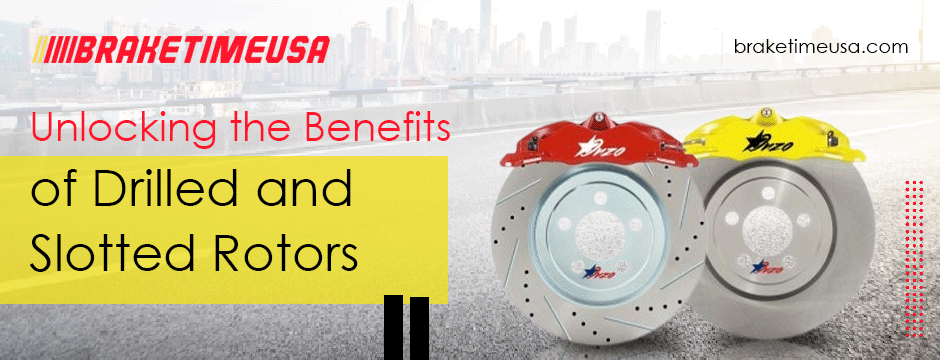 Mar 27, 2024Unlocking the Benefits of Drilled and Slotted Rotors
Mar 27, 2024Unlocking the Benefits of Drilled and Slotted Rotors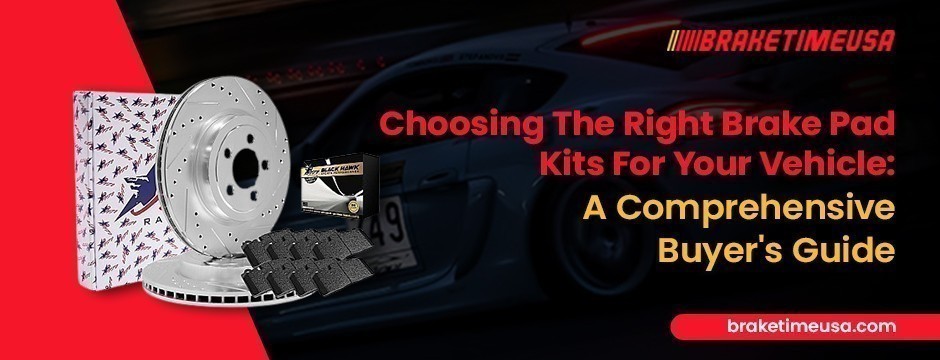 Mar 22, 2024Choosing The Right Brake Pad Kits For Your Vehicle: A Comprehensive Buyer's Guide
Mar 22, 2024Choosing The Right Brake Pad Kits For Your Vehicle: A Comprehensive Buyer's Guide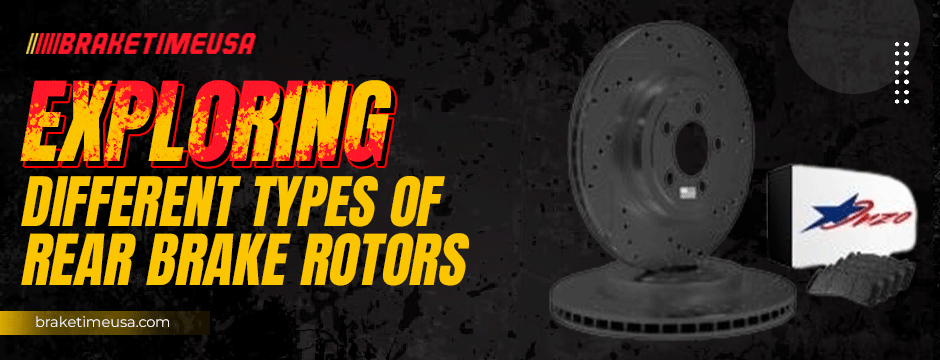 Mar 18, 2024Exploring Different Types of Rear Brake Rotors
Mar 18, 2024Exploring Different Types of Rear Brake Rotors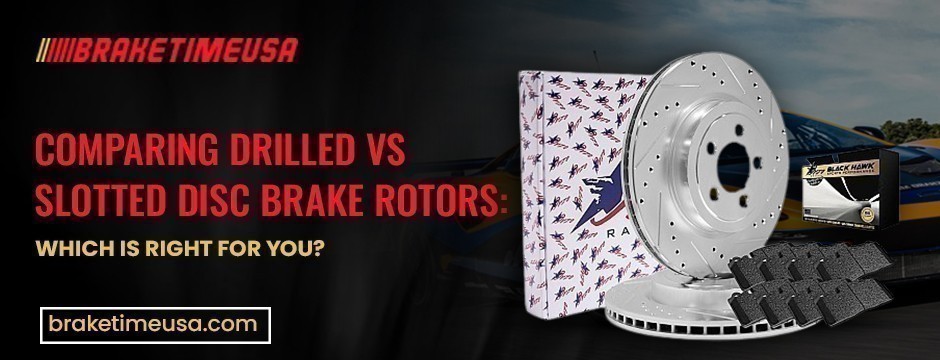 Mar 6, 2024Comparing Drilled vs. Slotted Disc Brake Rotors: Which Is Right for You?
Mar 6, 2024Comparing Drilled vs. Slotted Disc Brake Rotors: Which Is Right for You?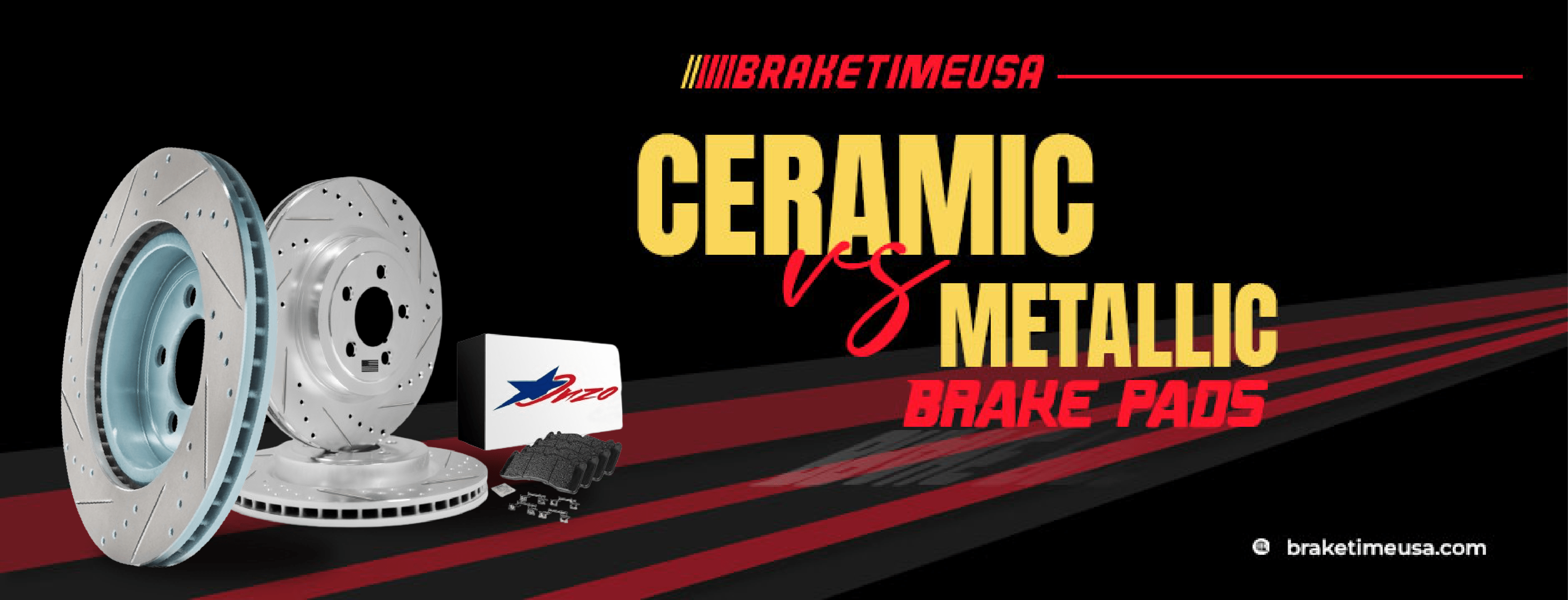
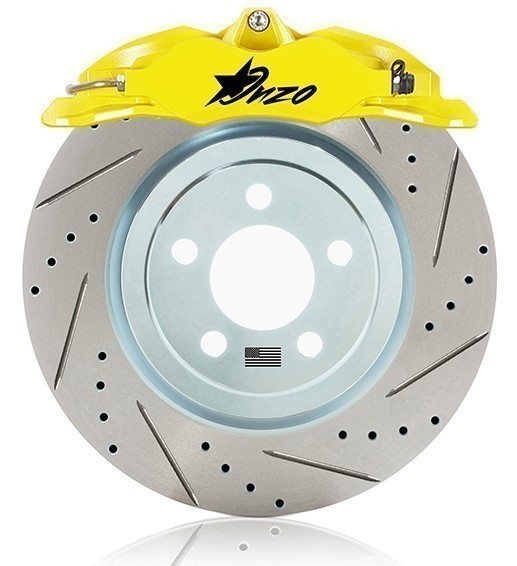 Feb 5, 2024Comprehensive Guide on How To Check Brake Pads and Rotors for Optimal Maintenance
Feb 5, 2024Comprehensive Guide on How To Check Brake Pads and Rotors for Optimal Maintenance© 2023 - 2024 Braketimeusa. All rights reserved.
